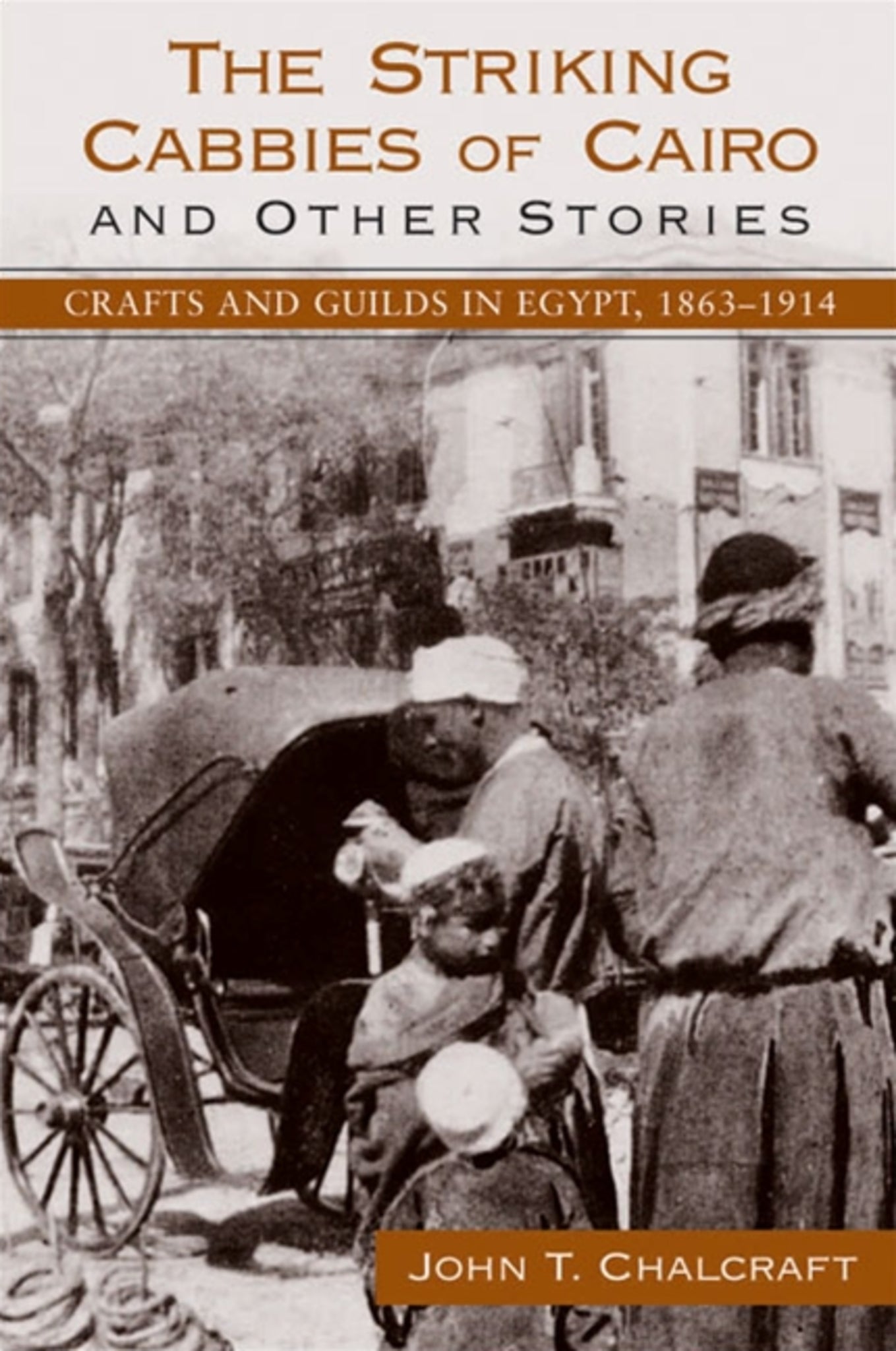We're sorry. An error has occurred
Please cancel or retry.
The Striking Cabbies of Cairo and Other Stories

Some error occured while loading the Quick View. Please close the Quick View and try reloading the page.
Couldn't load pickup availability
- Format:
-
02 August 2004

Challenges existing views of crafts and service workers in Egypt in the nineteenth and early twentieth centuries.
This book charts new directions in Egyptian social history, providing the first systematic account of adaptation and protest among crafts and service workers in Egypt in the nineteenth and early twentieth centuries. Using a wealth of new sources, John T. Chalcraft challenges conventional notions of craft stagnation and decline by recovering the largely unknown histories of crafts workers' restructuring in the face of world economic integration, and their petitions, demonstrations, and strike-action at a time of state-building and colonial rule. Chalcraft demonstrates the economic importance of petty producers and service providers, and tells the story of widespread collective assertion couched in new discourses of citizenship and nationalism. He also gives a new interpretation of the end of the guilds in Egypt and addresses larger debates about unevenness under capitalism.


Figures
Foreword by Donald Quataert
Acknowledgments
Introduction
Popular History
Crafts, Protests, and Guilds in Egypt
Unevenness under Capitalism
Restructuring and Political Contention, 1805–1914
Structure and Scope
Documents, Newspapers, and Old Books
1. Crafts and Guilds before 1863
Crafts and Guilds in the Ottoman Empire
European Power and Egyptian Dynasty Building
Crafts and Service Workers
Guilds
Conclusion
2. Restructuring after the Cotton Boom
Unequal World Economic Integration
Imperialism
Self-Strengthening
Restructuring
Construction
Textiles and Garment Trades
Urban Transport
Conclusion
3. Petitions and Protests under Isma'il
Co-opting the Guilds
Weapons of the Weak
New Avenues of Participation
The Box Makers of Cairo and Taxation
A Stonemason and Guild Dues
Contracting, Labor Relations, and Merchants
Seeking Mercy: The Cabdrivers of Cairo
Claiming Citizenship: The Carters of Bulaq
Bidding for Redistribution: The Porters of Alexandria
Conclusion
4. Restructuring under Colonial Rule
The Colonial State and World Economic Integration
Crafts and Service Workers and Restructuring
Garment Making
Textiles
Construction
Urban Transport
Conclusion
5. Strikes and Protests under Colonial Rule
Demobilization
Abandoning the Guilds
Informalism
Out of the Frying Pan, into the Fire
The Rise of Nationalism
The Advent of Mass Popular Protest
The Making of an Alliance
Conclusion
Conclusion
Restructuring
The Guilds
Collective Assertion
Unevenness under Capitalism
Popular History
Appendix. A Boatman's Petition
Notes
Bibliography
Index



